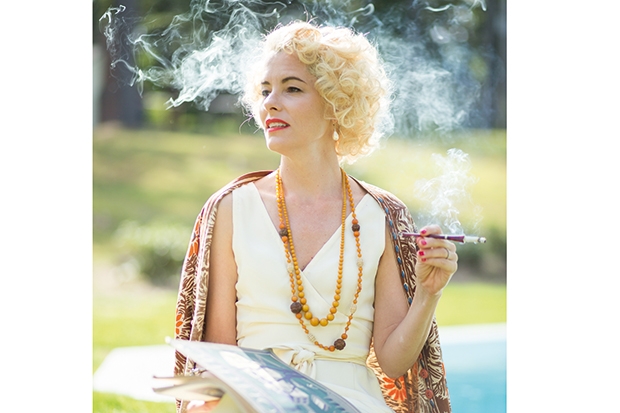Woody Allen has made a film nearly every year in the four decades since the release of the award-winning Annie Hall. Every one is hailed as a potential return to form, and of course some definitely are. Blue Jasmine, say. Possibly Midnight in Paris. How do the late-era Allens compare with the earlier ones? It’s an increasingly tricky question to answer the more prolific the writer/director is.
However, perhaps a more useful question than ‘how good is it?’ is ‘will you actually enjoy Café Society?’, his latest. And the answer, most probably, is ‘Yes’.
Woody Allen is banking on the amiable, half-witted quality of this latest work, enveloping audiences in gorgeous cityscapes and big-name celebs in the same way he has done a lot in recent years (the sumptuous Vicky Cristina Barcelona is a prime example), but this time more completely, with 1930s Hollywood and mob-era Manhattan taking centre stage. His characters mock those who indulge too unreservedly in the splashy luxuries of life before later succumbing to their appeal — and perhaps the same might be said of Allen’s audience here.
We have Jesse Eisenberg as Bobby, the neurotic Jewish innocent, shamelessly (and with slightly creepy perfection) channelling the younger years of his director, who meanwhile delivers a croaky, clichéd voiceover as his protégé navigates the difficult business of growing up, falling in love and making a success of life, whatever that means of course, at the cost of his naive charm.
Bobby, a lifelong Bronx resident, sporter of an unfashionable Pompadour hairstyle and fan of the simpler things in life, goes to seek his fortune across the country in Los Angeles, a place where the sunset is always elegantly crimson and everyone at parties bitches and wears beige.
There he has his requisite run-in with a first-time working girl (whom he sends home with full payment, unsoiled) and meets his hotshot agent of an uncle (a surprisingly forgettable Steve Carell) as well as his enigmatic assistant Vonnie, played by Kristen Stewart who is superb here, with none of the self-conscious lip-chewing that usually makes her such a tricky watch. Bobby is instantly captivated — and heartbreak feels inevitable.
Back home in the Bronx, some years later, Bobby becomes embroiled in the arguably no less salubrious world of his brother’s nightclub business and marries the beautiful but insipid divorcée Veronica (an unsurprisingly forgettable Blake Lively).
It’s glossily filmed — from the Tinseltown mansions to the impoverished candlelit motel rooms — and amusingly though predictably scripted. Much is made of our youthful clinging to long-held belief systems, be they religion or first loves. ‘First a murderer then a Christian? What did I do to deserve this?’ wails Bobby’s mother about a disgraced family member, lapsing now and again into Hebrew. This is the pulse of a New York that Allen loves and knows and here, as so often, he finds that fine line between comedy and discomfort.
Although the neuroses and tribes under the microscope here are all very Annie Hall and Crimes and Misdemeanors, they are carefully packaged as a pleasant period piece. A cheery, jazzy score floods every scene, to the point that when Lively’s character cocks her head to one side and asks, ‘Well, who doesn’t like jazz?’ you long to scream: ‘Me, me — I do usually but can we listen to something else now, please?’
Wonderful performances fill the screen, most notably Stewart, who is charming and passionate in a way that I don’t think I’ve seen her be before. And Eisenberg is far better than he was in To Rome with Love, morphing believably from boy to man. The two actors together strike an extremely likeable balance.
Ultimately, of course, nothing really comes to anything. That is the Allen way. Is it enjoyable? Absolutely. Is it any good? Now, that’s a far more complicated question.






Comments